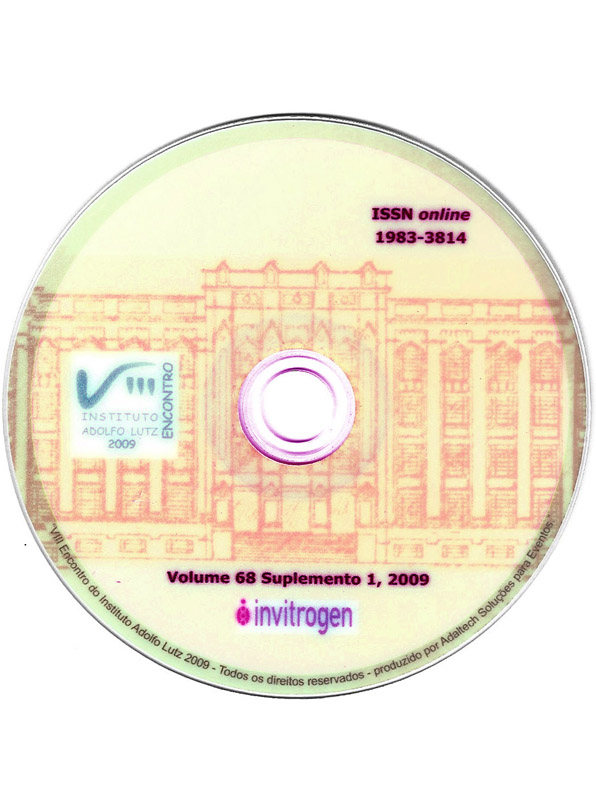Resumo
The human parvovirus B19 (HPV B19) belongs to the genus Erythrovirus, family Parvoviridae. The worldwide distribution of HPV B19 infection can lead to numerous clinical manifestations and cause a wide range of human diseases, including erythema infectiosum, persistent anemia, hydrops fetalis, and others. Studies have shown genetic variations among erythrovirus variants and have suggested three distinct genotypes, designated genotype 1 (B19-related viruses), genotype 2 (A6-related viruses), and genotype 3 (V9-related viruses). Our objective was to know if there are correlations between the erythroviruses variants and severe infection. We studied three patients suspected of the human parvovirus B19 that were treated at public hospitals. Two females, aged nine years old and another fourteen years old both showed severe persistent anemia, and another male patient, a month old, presented erythema infectiosum, and was suspected of congenital infection. The assays for HPV-B19 were performed at Adolfo Lutz Institute in Sao Paulo. ELISA assay of the sera was processed using specific IgM and IgG antibodies to HPV-B19, and Nested- PCR assay for the detection of HPV-B19 DNA. The product amplified of the partial NS1 region was sequenced and genotyped by phylogenetic reconstruction. Results showed that the nine years-old patient had IgG and IgM antibodies positive to HPV-B19. The fourteen yearsold patient had IgG negative and IgM positive, and the one month old patient showed IgG positive and IgM negative antibodies to HPV-B19. Nested-PCR detected DNA to HPV-B19 and the phylogenetic analyses showed genotype 1 to all three patients. Although of the short fragments of the NS1 gene are adequate to allow genotype identification with described previously. Despite not finding any correlations between severe infection and the genotype, our findings point to the need to perform the PCR assay even with the negative IgM cases. We hereby reported three severe infections of HPV-B19 with similar molecular characterization.

Este trabalho está licenciado sob uma licença Creative Commons Attribution 4.0 International License.
Copyright (c) 2009 MI Oliveira, AMS Afonso, SP Curti, M Theobaldo, SB Castrignano, CA Figueiredo
